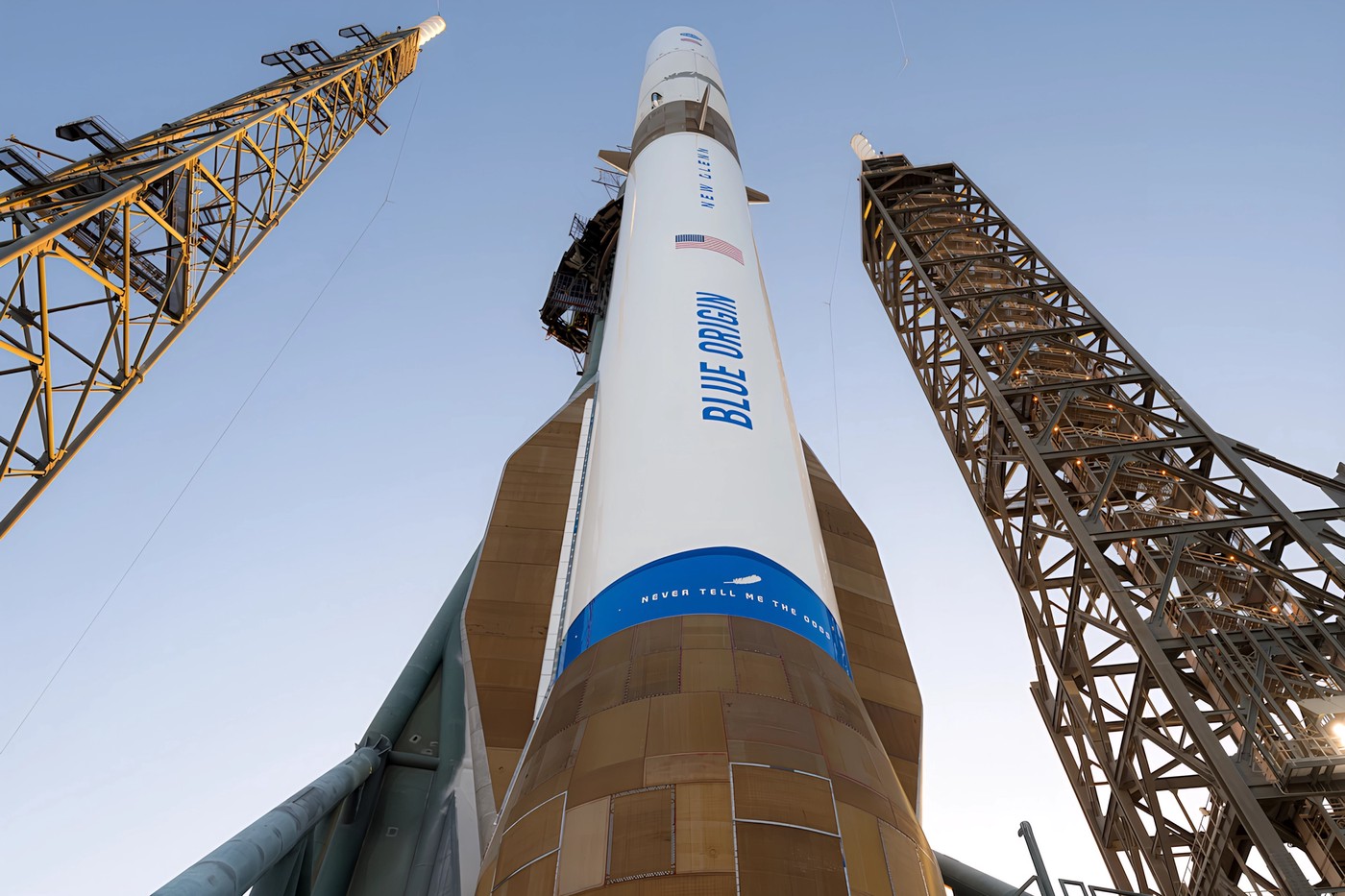Blue Origin, the space company founded by Jeff Bezos, has once again postponed the second launch of its massive New Glenn rocket. The scheduled liftoff, which was set for Sunday afternoon, was called off due to unfavorable weather, minor technical problems at the launch pad, and a cruise ship that wandered into the rocket’s designated flight path.
The company confirmed that it will make another attempt on Wednesday, November 12, with the launch window opening at 2:50 p.m. ET and closing at 4:17 p.m. ET. The decision came after close coordination with the Federal Aviation Administration (FAA), which had recently imposed new restrictions on space launches following the U.S. government shutdown.
Why the Launch Matters
This second mission holds major importance for Blue Origin. It aims to demonstrate full rocket reusability—something that has long been the hallmark of SpaceX’s success. While the first New Glenn launch in January successfully reached orbit, the booster failed to land safely, exploding before recovery. Blue Origin hopes to achieve its first successful booster landing this time, a milestone that would make its reusable rocket ambitions a reality.
Additionally, this is New Glenn’s first commercial mission. The rocket is set to carry NASA’s ESCAPADE spacecraft to Mars, marking an important collaboration between the agency and Blue Origin. The mission also includes a Viasat technology demonstrator, part of a separate NASA initiative. Successful delivery of both payloads will be critical in proving New Glenn’s reliability and competitiveness in the global commercial space sector.
Delays and Launch Challenges
This launch has already faced multiple delays. Earlier attempts were postponed due to technical and environmental factors, with Sunday’s launch window at Cape Canaveral, Florida, initially opening at 2:45 p.m. ET. However, as the team worked to resolve weather and equipment concerns, a cruise ship entered the rocket’s flight path just minutes before ignition.
Even though the ship was expected to clear the area before the window closed at 4:15 p.m. ET, worsening weather conditions forced Blue Origin to call off the attempt entirely.
Blue Origin vs SpaceX
The New Glenn rocket represents Blue Origin’s biggest step yet toward competing directly with Elon Musk’s SpaceX. Both companies are pursuing fully reusable rocket systems aimed at reducing the cost of space access. For Blue Origin, proving New Glenn’s reliability is essential to earning commercial trust and government contracts.
With a successful launch and landing, Blue Origin could cement its place as a serious player in orbital transport and Mars mission support. However, continued delays highlight the challenges of developing large-scale reusable rockets—a feat only SpaceX has consistently achieved so far.
Looking Ahead
The rescheduled launch on November 12 will be closely watched across the space industry. A successful mission could reaffirm Blue Origin’s technological progress and open new opportunities for future commercial payloads and deep-space missions.
Despite setbacks, the company remains committed to refining New Glenn’s design and achieving full reusability in the months ahead. If the next attempt goes as planned, it could mark a defining moment for Bezos’ long-term space ambitions.
Follow Tech Moves on Instagram and Tech Moves on Facebook for more updates on artificial intelligence, apps, and the latest breakthroughs in tech.














